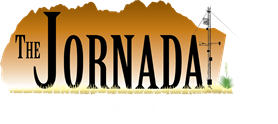| Title | Rangeland ecosystem services: nature’s supply and humans’ demand |
| Publication Type | Book Chapter |
| Year of Publication | 2017 |
| Authors | Sala O.E, Yahdjian L, Havstad K, Aguiar M. |
| Book Title | Rangeland Systems: Processes, Management and Challenges |
| Chapter | 14 |
| Pagination | 467-489 |
| Publisher | Springer |
| City | New York |
| ISBN | 978-3-319-46709-2 |
| Accession Number | JRN54687 |
| ARIS Log Number | 331885 |
| Keywords | cultural, ecosystem services, human well-being, provisioning, regulation, stakeholders, trade-offs, win–win |
| Abstract | Ecosystem services are the benefits that society receives from nature and they include the regulation of climate, the pollination of crops, the provisioning of intellectual inspiration and recreational environment, as well as many essential goods such as food, fiber, and wood. Rangeland ecosystem services are often valued differently by different stakeholders interested in livestock production, water quality and quantity, biodiversity conservation, or carbon sequestration. The supply of ecosystem services depends on biophysical conditions and land use history and it is assessed using surveys of soils, plants and animals. The demand for ecosystem services depends on educational level, income and location of residence; and it is assessed with stakeholder interviews and questionnaires/surveys. Rangeland management affects the supply of different ecosystem services by producing tradeoffs among services. Tradeoffs result when an increase in one service is associated with a decline in another and win-win situations occur when an increase in one service is associated with an increase in other services. This chapter provides a conceptual framework in which range management decisions are seen as a challenge of reconciling supply and demand of ecosystem services. |
| URL | files/bibliography/17-008.pdf |
| DOI | 10.1007/978-3-319-46709-2_14 |


